Taking a knee
From left, San Francisco 49ers' Eli Harold (58), quarterback Colin Kaepernick (7) and Eric Reid (35) kneel during the national anthem before their NFL game against the Dallas Cowboys on Sunday, Oct. 2, 2016 in Santa Clara, Calif. (Nhat V. Meyer/Bay Area News Group/TNS)
September 26, 2017
To kneel or not to kneel. That’s the internal conflict that many players in the NFL faced this weekend. Should I stand for what I believe in, or is it the wrong place and time to do so?
Most people have heard of the issue involving Colin Kaepernick kneeling during the national anthem to bring awareness to an issue he believed to be relevant and important in today’s society; the issue of oppression against minorities in America. This caused controversy because after his “protest,” Kaepernick was later released from the San Francisco 49ers and has yet to be signed to another NFL team.
Many of his supporters claimed that his release from the team was a direct result of his protest and that it isn’t fair to cut him from the team for exercising his first amendment right. His opposers claimed that his release was a result of his poor gameplay and that the owner of the team has the right to fire him because of his actions if they choose.
Other players in the NFL have decided to kneel during the national anthem as well as a sign of support for Kaepernick. However, the issue started to die down and become of less importance than it previously had been; until Sept. 22 on a Friday night at a Trump rally in Alabama. Trump said Friday that NFL owners who see players “disrespecting the flag” should “get that [expletive] off the field right now, he’s fired!”
Trump’s comments stirred the pot once more and created a huge mess that eventually backfired on him. Players from all teams and even whole teams as a group protested in some form. Whether it be kneeling during the anthem, locking of arms during the anthem, kneeling and locking of arms before the anthem or just not coming out of the locker rooms at all during the anthem, there was some form of protests by every team.
The protests, however, were mostly seen as a symbol of unity against the “divisive” comments made by Trump, which differs from the cause that Kaepernick stood for. Although, the question of whether the protests were gone about properly is inevitable.
During the national anthem, people should all stand (if able), be reverent to the flag and reflect on the many men and women who have sacrificed much (or all) to make our country better. We should all show respect and show that we will stand united in order to further the progress of this great country that we call home. So is kneeling during the anthem protected by the first amendment? Yes it is. Is kneeling for the anthem the best way to bring attention to a cause I believe is important in today’s society? Absolutely not.
However, you might say, “the protests aren’t intended to show any disrespect to the men and women who fought for this country,” but just because that’s not the intent, it doesn’t mean that what you are doing isn’t disrespectful.
The Dallas Cowboys did an amazing job at portraying how the situation should be handled. Before the national anthem was played (yes, before), the Dallas Cowboys locked arms, players and coaches both, walked to the center of the field, and took a knee as a sign of unity. A few seconds later, they all stood up, arms still locked, and walked back to the sidelines. Then, the national anthem started to be sung by Jordin Sparks. During the anthem, Dallas stood together with arms locked, were reverent to the flag and some even sang the anthem as well. Even though their hands were not over their hearts, they still stood and they still showed respect. That is exactly how the situation should be handled.
Overall, people need to realize what our beloved flag represents and how important it should be to us. That flag is a symbol of freedom. That flag represents the men and women who fought and died for this country. That flag is a picture of your family members before you who did everything they could to contribute to America and make it a better place for you and all who live inside its borders. No matter your age, race, religion or color of skin, that flag is you. So how about we start treating it like it should be treated?


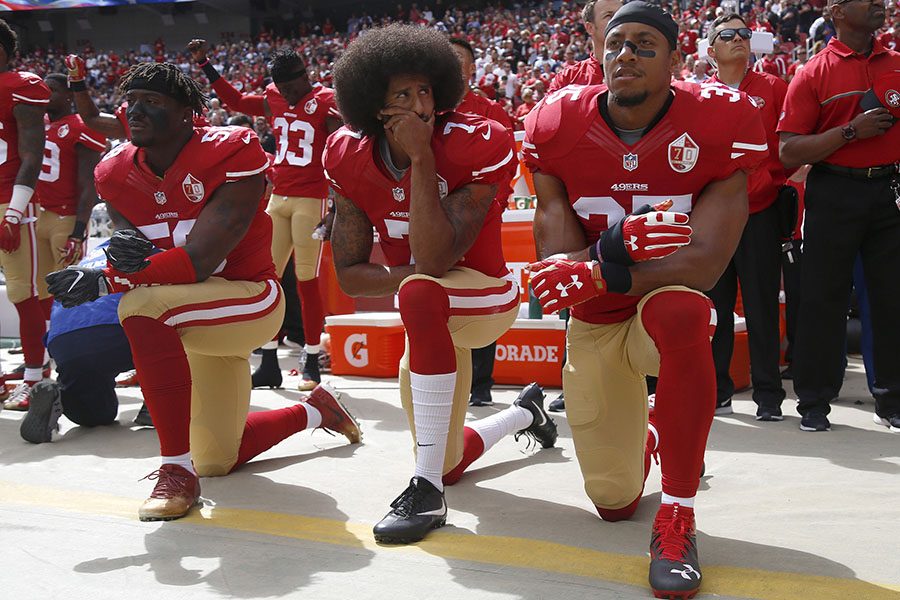


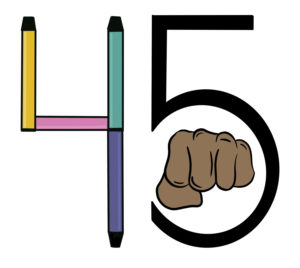









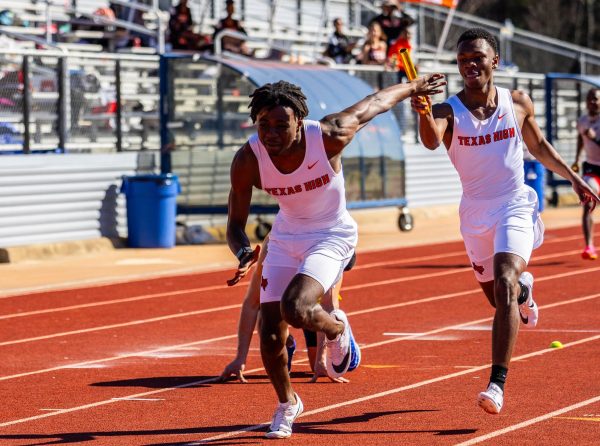
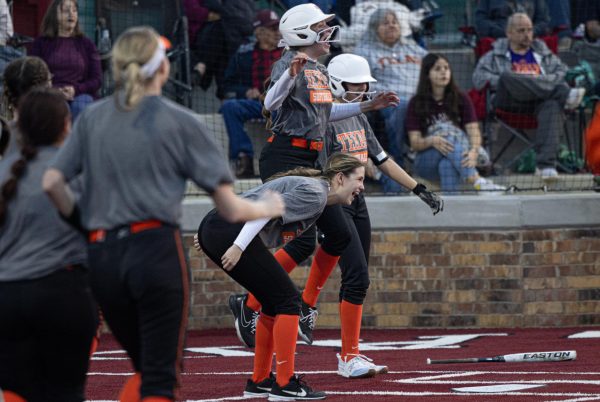


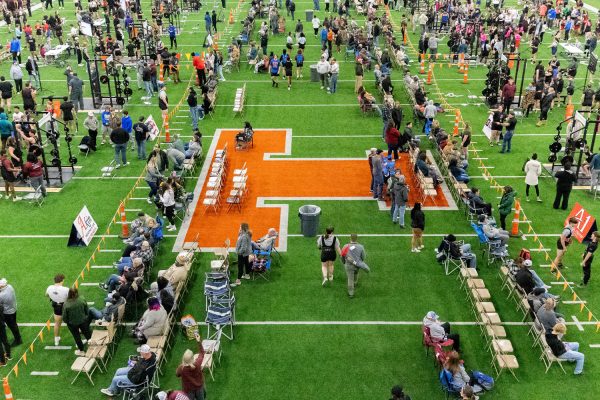

Kristy • Sep 27, 2017 at 10:07 am
Great article! It is well written, articulate, and the subject matter presented in a thoughtful and respectful way.
Don Whinery • Sep 27, 2017 at 8:41 am
Very well written and a great discussion, although controversial, that we need to have.
Donna • Sep 27, 2017 at 6:24 am
Very well said. I love this newspaper. It definitely shows that our young adults have high morals and standards regardless of what most media tries to portray. You are America’s future.